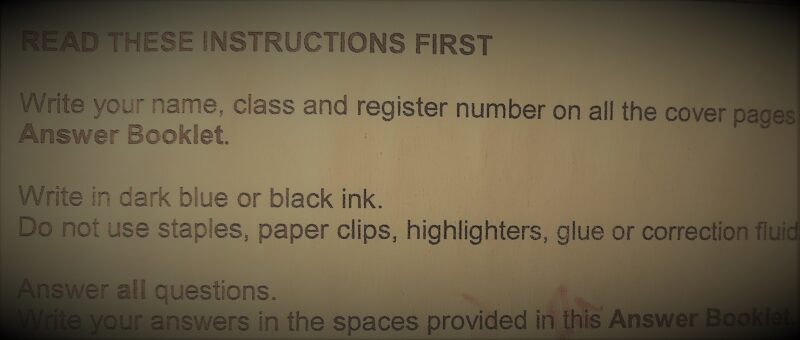
There was a battle between my conscience and my desire.
– A Decision, R
At The Brain Dojo, students receive a letter for every first draft of compositions they write. Each letter is a personal response to their story. Every letter is different and there is no standard template or specific areas which are covered. What a student receives would depend on the contents of the story and student’s thought process revealed therein. Techniques, language and life lessons in relation to the relevant theme are surfaced. The letters train critical thinking and develop language ability.
The following is a letter written to a primary 5 student who likes K-pop and plays a fast-paced sport competitively. His story was on the theme, A Decision.
Synopsis
The protagonist has not studied for an examination and knows he is most likely to fail. What bothers him very much more than a failing grade is the anticipation of how his mother might respond. As chance would have it, he happens to sit beside a boy who everyone knows to be a strong performer. His inner demon makes a prompt appearance and lassos him with temptation. He knows copying is wrong. At the same time, he shudders at the thought of what failure might mean. A tug of war ensues between his conscience and his self-preservation instincts. The thoughts of facing up to the consequences of his own choices pushes him further towards what he knows he ought not to do while his inner demon offers a tantalising way out, steadily pulling him closer and closer to the dark side. He takes the offer he finds himself unable to refuse.
Dear R,
In Decision you wasted no time with introducing the story world to your readers. You began with the problem. Though this is a common storyline, only someone with an astute understanding of the battles the conscience wages could have written it in the crystal-clear way as you have done.
What is particularly commendable is your adroit use of language in almost every other line. In almost every instance, you have used advanced vocabulary appropriately. There are many words we could use to represent a feeling or situation. Some of these words are simple – they are shorter and quite common. Some of these words are longer and less common. For these reasons, they can be quite intimidating.
However, these longer words and less common words bring out in a very precise way exactly what the nature of a situation is. We do not use advanced vocabulary because they look fancy. We use them because we want to say exactly what we mean. Advanced vocabulary says more than less advanced vocabulary and so your readers get to enjoy the story in a much deeper and richer way.
Your story was very relevant to the theme. You described the temptation in sufficient detail. You let the reader into John’s mind by stating clearly in words, the reasoning he went through and the mental agony this reasoning caused. At a very young age, you demonstrated a keen understanding of how opportunistic our inner demon can be – “The thought came unbidden to my mind” and how easy it is to betray the boring old conscience because what it offers often pales in comparison with the sparkling treasures, so visible in the dark side.
Though this is a common story, you made it very much less common by risking an unconventional ending – John never owned up till the end. You showed clearly the consequences of the decision, both to John and to Tom. Even when John saw clearly what his decision had wrought, he still could not bring himself to come clean. Indeed, one bad choice often leads to another. You gave your readers a front row seat on how easy it is to lose their way along a road which they never intended to take in the first place.
In real life, this often actually happens. It will be very difficult to extricate yourself from a knot like that; one lie leads to the next and the next and we will eventually find ourselves completely trapped and immobile in knots.
You could have added what it felt like to John when his mother praised him. You said John felt guilty because, “Tom was dull for almost every single day”. Was that all that made John feel guilty? What does undeserved praise and recognition feel like? What might that do to a person?
You described temptation and the battle inside in great detail. You must also have at least as much to say about what guilt feels like. This way, your readers can understand that the treasures of the dark side, which at first appear to be offered for free, come at a price we cannot afford and which we would spend an unacceptable amount of time trying to pay.
It seems like John felt so guilty that he wanted to punish himself – “at the next examination, I failed”. Readers would see that a charade can only go on for so long. Eventually the gains which stick are those which we work hard for.
So R, you have pulled off a very well written story based squarely on the theme. You demonstrated skilful use of vocabulary. You can try and think of alternative speech and mental verbs to use, in place of ‘said’ and ‘thought’. This of course would be child’s play for someone who uses words like, “accentuate”, “gnawed” and “impending”.
I look forward to reading more masterful stories from you which show such insightful understanding of the struggles which people go through and why people behave the way they do.
Well done and great effort!
The Brain Dojo




